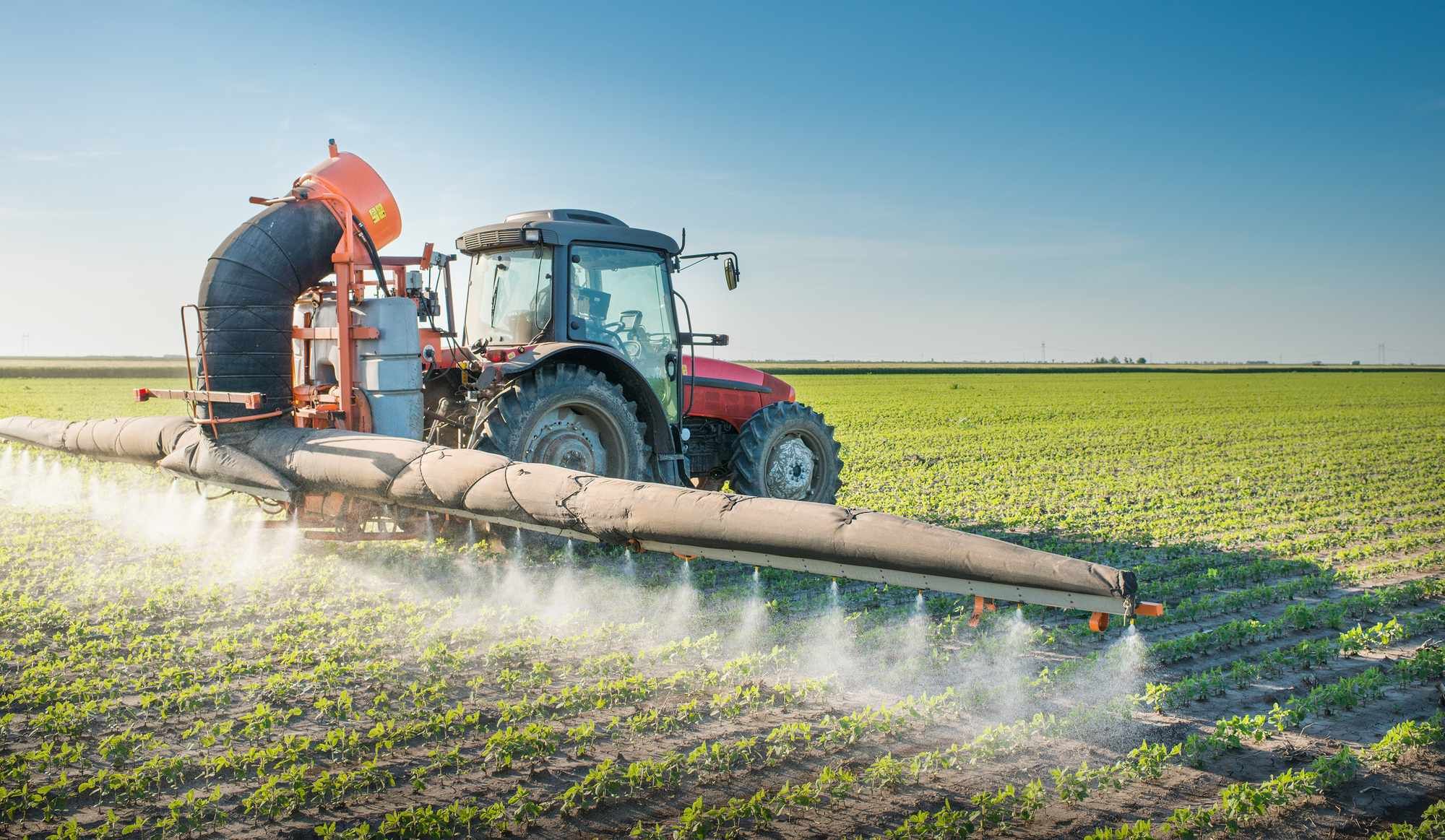Top Class Actions’s website and social media posts use affiliate links. If you make a purchase using such links, we may receive a commission, but it will not result in any additional charges to you. Please review our Affiliate Link Disclosure for more information.
Glyphosate cancer can be any type of cancer resulting from multiple exposures to the active ingredient in Roundup—one of the most popular herbicides across the globe.
The most common type of cancer alleged to be linked to this ingredient is non-Hodgkin’s lymphoma (NHL), a life-threatening disease of the immune system.
What Is Glyphosate?
Glyphosate is an herbicide first registered for use in the United States in 1974. It targets broadleaf plants and grasses in agriculture, forestry, residential, and industrial settings. In some cases, glyphosate can also control aquatic plants.
Glyphosate-based herbicides are particularly effective because they are “non-selective,” meaning the chemical will kill most plants. The herbicide kills plants by interrupting the proteins needed for plant growth.
According to the National Pesticide Information Center, pure glyphosate is low in toxicity, but when mixed with other ingredients in consumer products, the chemical may allegedly become more toxic.
What Are Glyphosate Risks?
Consumers may experience a variety of symptoms after brief exposure to the chemical. These symptoms could include eye irritation, skin irritation, nose irritation, and throat irritation. If the product is ingested, it could result in increased saliva, throat and mouth burns, nausea, vomiting, and diarrhea. In cases of intentional ingestions, fatalities have been reported.
Unfortunately, the herbicide may also be associated with glyphosate cancer, according to consumer allegations.
Allegedly, glyphosate cancer appears most frequently in the form of non-Hodgkin’s lymphoma, or NHL. This cancer affects the lymphatic system and forms within the body’s white blood cells. NHL can result in a variety of symptoms including swollen lymph nodes, abdominal pain, persistent fatigue, chest pain, coughing, trouble breathing, fever, night sweats, and unexplained weight loss.
Although some patients may experience slow growing lymphomas that do not require immediate treatment, other lymphomas can be aggressive and life threatening.
Has There Been a Successful Case Linking Glyphosate Cancer to Roundup?
This diagnosis affected two different plaintiffs involved in lawsuits against Monsanto—the manufacturer of Roundup—which ended in awards for the complainants in the last year, according to PBS. Monsanto—purchased by Bayer AG last year—received a verdict against them in 2018 in a San Francisco-based state superior court and a similar verdict in late March this year.
The first plaintiff—DeWayne J.—was diagnosed in September 2015 with NHL after first being thought to have epidermotropic T-cell lymphoma a year earlier. Mr. J was a school groundskeeper whose job involved massive application of Roundup gallons numbering in the hundreds. After undergoing significant chemotherapy that year, and radiation treatment as well, his glyphosate cancer hasn’t abated but rather revealed signs of significant progression. Monsanto was said to have been ordered to pay a significant verdict, but an appeal of this decision is underway.
A second case, decided this past spring, involved plaintiff Edwin H.—a citizen and resident of Sonoma County California who used Roundup regularly since the 1980’s. The purpose of this use was to control the weed growth and poison oak proliferation on his property of 56 acres. He purportedly used all precautionary instructions for using the herbicide but, after several years of use, was diagnosed with NHL in 2015. He won in court, but Monsanto is also appealing this decision. The results of both appeals remain to be seen.
 Are Average Citizens in Danger of Glyphosate Exposure?
Are Average Citizens in Danger of Glyphosate Exposure?
According to WebMD, farmers use glyphosate products in such proliferation that consumers would have difficulty purchasing produce without some trace of it unless they focus upon organically grown items. It is most commonly sprayed on crops of corn, canola, soybeans, and other beans, cotton, sugar beets, wheat, barley, and oats. This application before the raw food goes through processing is problematic.
News coverage on this issue has focused on oat-based products like cold breakfast cereals such as Cheerios and Honey Nuts & Oats, hot oatmeal, and snacks such as granola bars. A report originating from a group of California scientists, 45 oat food products were tested and found to have glyphosate and sometimes in above-average levels.
Is There Agreement on the Dangers of Glyphosate?
No, unfortunately there is not, according to June 17, 2019 Business Insider article. While the International Agency for Research on Cancer—a division of the World Health Organization maintains its position that glyphosate is a “probable human carcinogen”, the U.S. Environmental Protection Agency stipulates that there isn’t enough evidence to link the ingredient to cancer. The Bayer Co. also points to the EPA’s stand on this issue and claims a paltry of conclusive data.
Do YOU have a legal claim? Fill out the form on this page now for a free, immediate, and confidential case evaluation. The Canadian lawyers who work with Top Class Actions will contact you if you qualify to let you know if an individual Roundup glyphosate cancer lawsuit or Roundup class action lawsuit is best for you. [In general, Roundup lawsuits are filed individually by each plaintiff and are not class actions.] Hurry — statutes of limitations may apply.
ATTORNEY ADVERTISING
Top Class Actions is a Proud Member of the American Bar Association
LEGAL INFORMATION IS NOT LEGAL ADVICE
Top Class Actions Legal Statement
©2008 – 2024 Top Class Actions® LLC
Various Trademarks held by their respective owners
This website is not intended for viewing or usage by European Union citizens.
Get Help – It’s Free
Join a Free Canada Roundup Class Action Lawsuit Investigation
U.S. citizens, click here for the U.S. Roundup Cancer Investigation.
If you qualify, an attorney will contact you to discuss the details of your potential case at no charge to you.
PLEASE NOTE: If you want to participate in this investigation, it is imperative that you reply to the law firm if they call or email you.


 Are Average Citizens in Danger of Glyphosate Exposure?
Are Average Citizens in Danger of Glyphosate Exposure?










